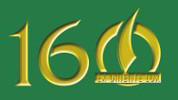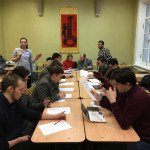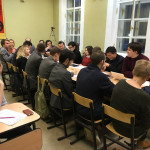On Monday, February 20, 2017, at 18.00, the first international seminar in 2017 in the mode of videoconferencing between St. Petersburg State University and the University of Michigan (USA) was held.
It should be mantioned that the first seminar in this format, which also became the first experience of holding of this kind of events in the history of St. Petersburg State University, was held on April 18, 2016. Unlike last year, in 2017 a series of webinars is scheduled, which will make up the whole course devoted to the study of Islamic intellectual heritage. The course program includes topics such as speculative theology (Qalam), philosophy (falsafa), legal theory (fiqh), etc. The working language of all webinars will be English, and the moderators of the classes will be staff members of the Scientific Laboratory for Analysis and Modeling of Social Processes under the guidance of Professor of Islamic Studies of the Department Middle East Studies at the University of Michigan, Laboratory Director Alexander D. Knysh.
SPSU students enrolled in Islamic studies programs and graduate students take part in this innovative project. Since in 2017, a series of webinars is not just a thematic lecture, but a full course, in frames of which, the students will have to submit a joint international project based on one of the webinar topics. To accomplish this task, course participants were divided into “working groups” of 2,3 4 people. The structure of each group included students of St. Petersburg State University and the University of Michigan. Thus, for almost two months, the participants of this project will work as part of an international team and communicate with colleagues in Russian, English, Arabic and Turkish.
The first seminar was devoted to the general concepts of kalam and falssaphs. During the discussion, questions were raised about the relationship between the two branches of Muslim philosophy, their connection with the legacy of ancient Greek philosophers, the controversy of Muslim theologians with representatives of other Abrahamic religions. Preparations for the seminar were carried out for two weeks and included mastering the material in English, constant communication with colleagues from the United States and the preparation of discussion questions from each “working group”. The participants showed keen interest in the problems of ancient, medieval and even modern philosophy, as well as the correlation and correlation links between ancient, Islamic and medieval European philosophical and theological thought. The best questions were discussed at the seminar in the mode of lively scientific discussion.
The first webinar was extremely successful and inspired both teachers and students to further difficult, but certainly fascinating work!



